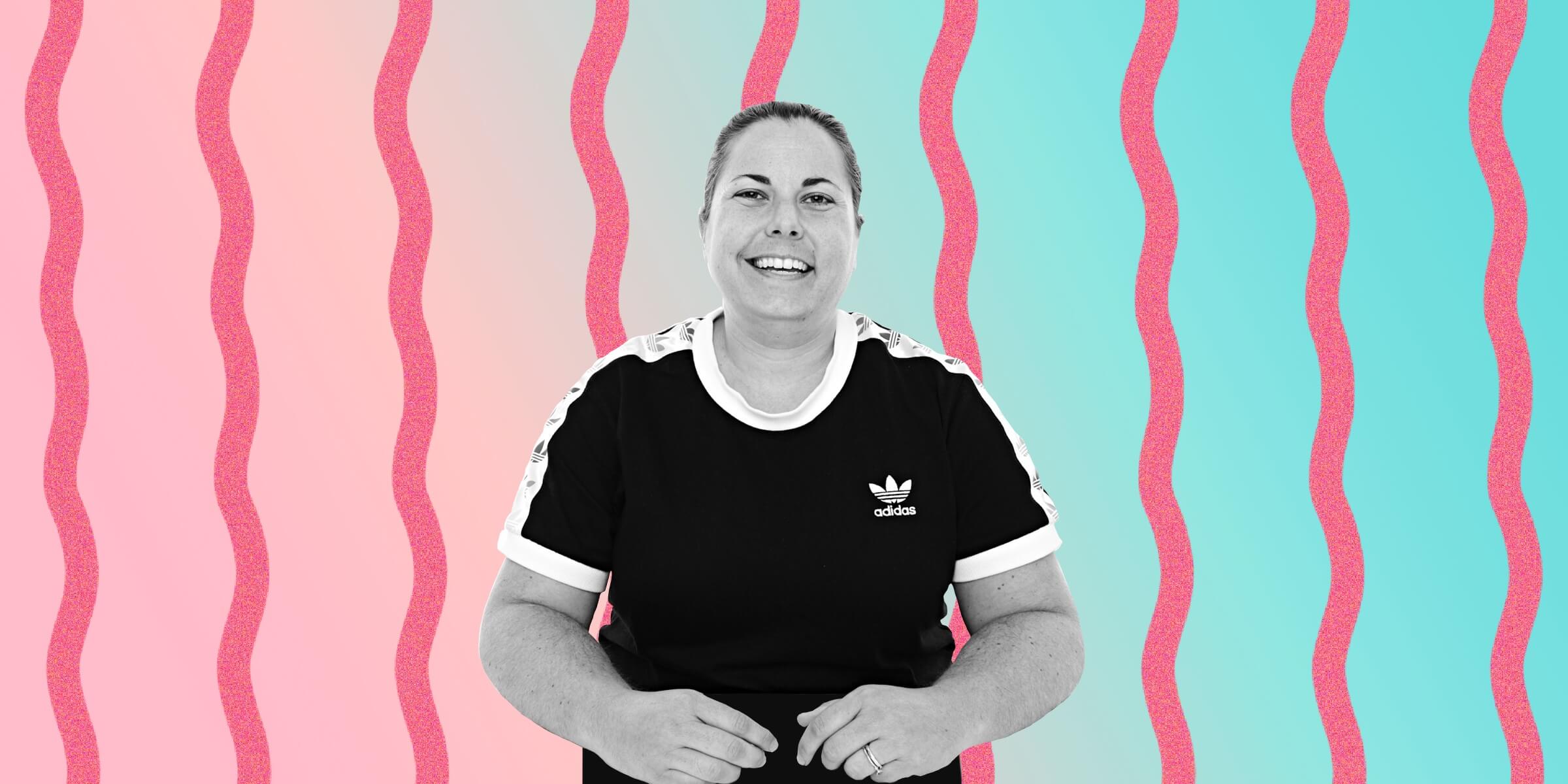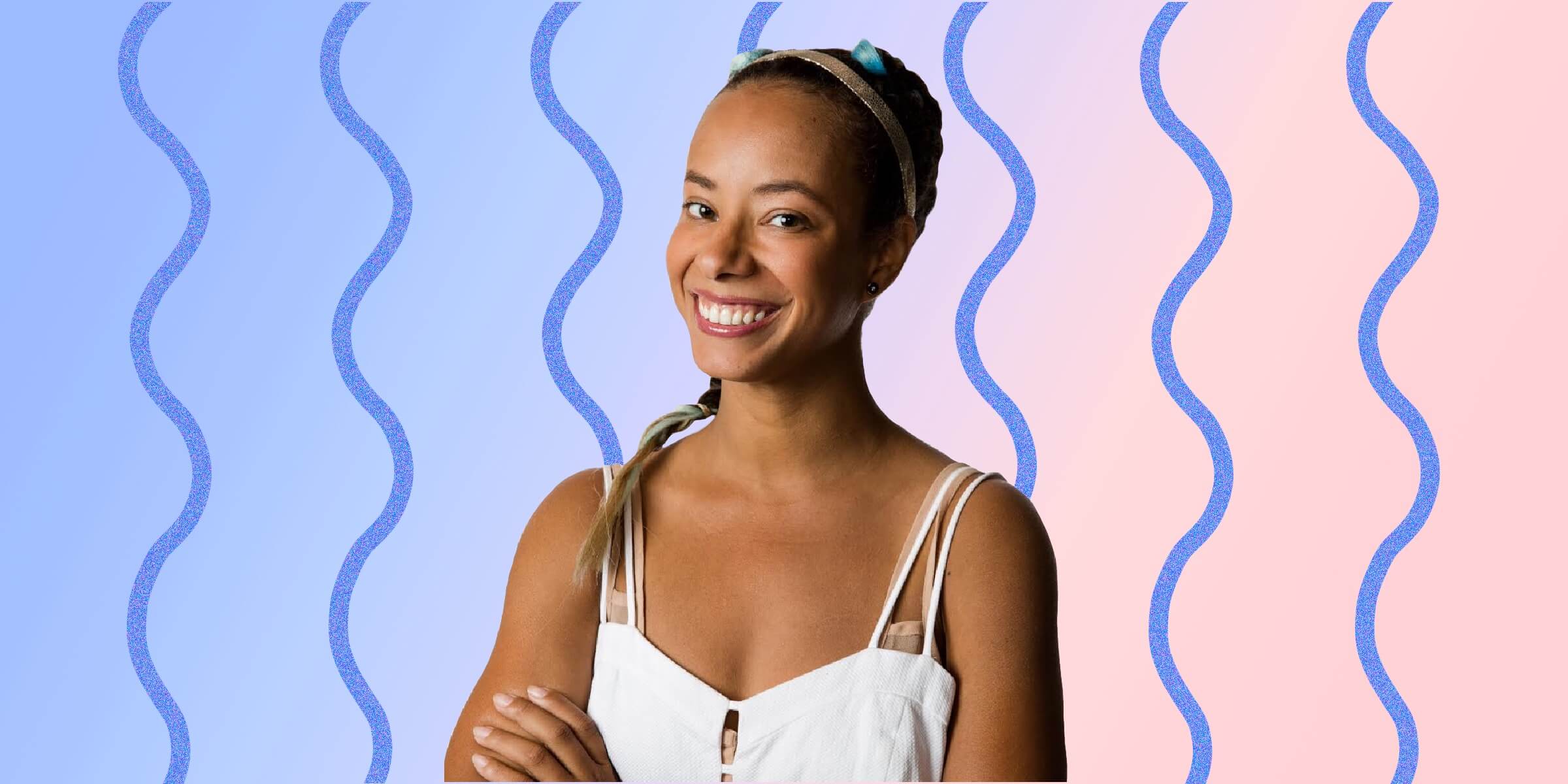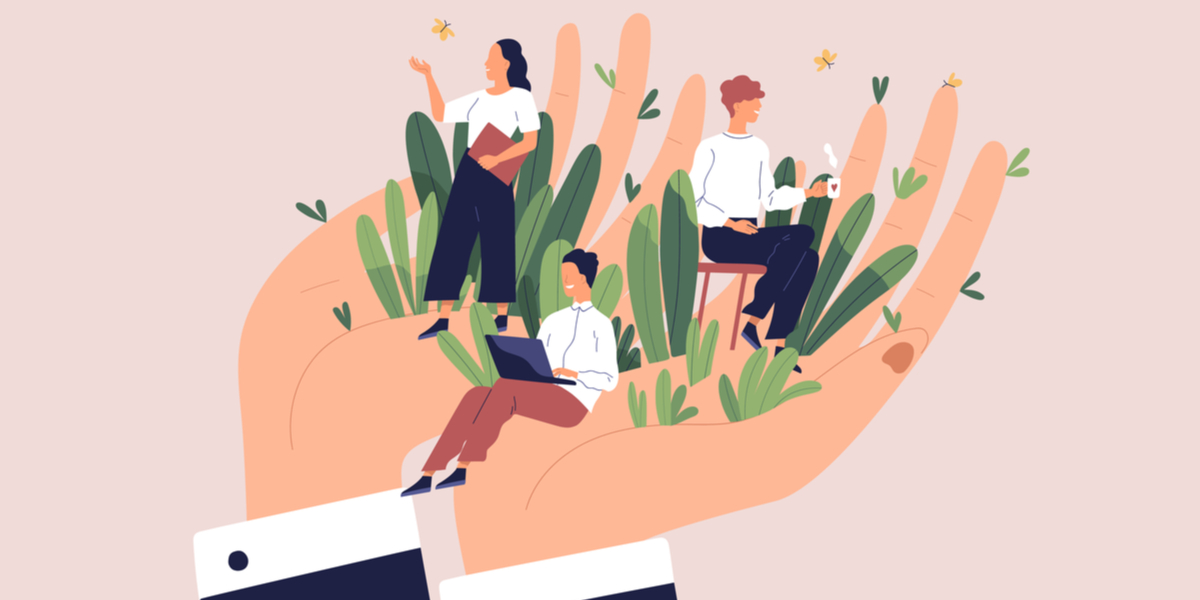The Path profiles people working in what we think of as "dream jobs," living their best professional life, and looks at the people and practices that helped get them there. We talk to these amazing folks about how goal setting, great leadership, tough decisions, and other key moments helped them get to where they are now. And, because so many career paths are inherently winding, we examine what it can look like to handle unexpected experiences along the way.
Like most global household names, Adidas has long been shaping our popular culture and driving conversations. But what’s it like to drive the internal culture of a culture-creating machine? This particular mission is at the core of Emmy Negrin’s skillset.
Since 2018, Emmy has been driving culture at Adidas, first as the Director of Diversity and Inclusion and now as the Director of the Global Social Impact team, where she leads a team focused on employee giving, volunteering, and diverse community impact partnerships around the world. With a background in international development, social change, and communications, Emmy’s career path has been winding. From working at a microfinance organization in sub-Saharan Africa to leading international outdoor wilderness treks focused on experiential learning, Emmy first took her diverse set of experiences and background into working with large corporations like Yahoo and Open Table, by creating new roles that didn't exist yet.
Here, Emmy opens up about the people who have had the biggest impact on her career journey, and what it means to contribute to shaping culture during a time of immense social change and upheaval.
What did you go to school for and what did you think you wanted to do at that time in your life?
Growing up, I thought I was going to be a therapist, I was interested in doing social work or therapy, supporting at-risk youth, and was interested in outdoor education and outdoor therapy — using nature as a healing place. Then I went to college and studied psychology, and then it became very clear that it wasn’t for me. Helping people was always at the center of what I wanted to do, but it was theoretical versus practical and I was interested in making big systems change. So I pivoted to study international development, social change, and communications.
Can you give me the ‘Spark’s Notes’ version of your career history so far?
I’ve had a very non-traditional path which I’m really proud of. I really just followed my passions. After graduating from Clark University, I got a grant to go back to Namibia and start a microfinance organization for victims of domestic violence and abuse in rural Namibia, built off of an internship I’d had. After about a year, I realized there was a fine line between helping and hurting, and that if you don’t understand the context of a community, you can actually be harmful. I ended up moving back to California and worked at a nonprofit focused on youth volunteering and experiential learning. I fell in love with experiential education and worked with guiding companies doing outdoor wilderness treks. I eventually had an informational interview with a family friend that worked as a consultant at Yahoo. She thought I had a unique background with experiential learning and bringing communities together, and that I could pivot that into working at a big company. I ended up getting an opportunity to be on the Learning and Development team at Yahoo. I spent three and a half years there, got involved in Equity and Inclusion, and then landed on the Yahoo for Good Team. After I left Yahoo, I was able to package that, and basically created a role for myself creating these programs that didn’t exist.
What led you to the position you’re currently in?
I didn’t know anyone at Adidas; I applied online and was rejected initially. Then a recruiter reached out and that’s how I ended up being recruited to work at Adidas in Portland. I was able to position what I had done at other companies and as a consultant, building diversity and inclusion programs from the ground up.
What are some daily habits you absolutely make sure to schedule into your day?
I’m really lucky that my wife is a work-from-home pro; she was already working from home full-time before COVID. We try to make each other breakfast every day and do lunch without our computers so that we can connect. We don’t have kids at the moment, so that makes things easier. I try to bike ride or do some physical activity at least once a day. At my best, I’m also meditating but that is tougher these days. I have also fallen in love with gardening. I have a veggie and fruit garden that has been exploding, so I am also picking veggies and cooking. It has been really grounding for me.
What do you love most about the type of work you do?
One of the things that always got me interested in this work is social entrepreneurship, the idea that there are unique ways to solve problems if we think out of the box. Right now, it’s really clear that being purpose-driven makes organizations more sustainable long-term, but is also a key in making employees stay engaged and want to stay. I think our governments are failing us; we can’t rely on them to truly create the radical change that we need. And I don’t necessarily think change is going to come only from corporations, but they do play very important roles in pushing for policy change, investing in the community and creating new ways of doing things. I get to have a pulse on helping leaders who are decision-makers think differently about the impact they are making both internally and externally.
Tell me about someone who’s made a significant impact on your career trajectory.
The founder of the organization that I worked with in Namibia, Rosa Namises. She is an entrepreneur who was inspired by driving true change for the community. She took me under her wing when I was a junior in college, and taught me how to really listen to the community and pivoted my intention and career significantly. She showed me the role that small and big organizations can play in being true agents of change. I also had a boss at Yahoo, Wendy Miller, who gave me an opportunity when I had no big company experience. She helped me see my potential, taught me a lot about being an empathetic leader, and opened a lot of doors for me.
What’s been the biggest learning lesson in your career so far?
I always try to remember that you kind of have to think about your own personal “brand” and what you stand for. When people interact with you — even if you work for an organization or if you’re a consultant — what are your values, what are you intentionally doing? It’s easy to say “these are my company values” but what are yours? If you can stay true to who you are and your core purpose, regardless of what position you’re in, you attract people who are interested in similar things and can support you in growing, not only within an organization but also in your next move.
What do you think makes a good leader?
Someone who is a great mentor, who is inclusive in their approach, and who is really invested in supporting the people that work for them and their team — by removing barriers when they exist but also giving a lot of freedom for people to create at their best. Leaders like this create a culture of psychological safety and support where innovation can really thrive and people can work at their best.
How do you approach difficult conversations at work?
First and foremost, creating an environment and a sense of being a safe person to bring challenging things to. The way I try to do that is by suspending judgment and really listening versus thinking of how to respond and being defensive — because that’s your ego. So really trying to be an empathetic and open listener. And then, I always try to ask guiding questions, because a lot of times the initial thing that's brought up isn't the core issue. It’s just the thing that pushed it over the edge. I strive to be action-oriented, getting really clear about what needs to change, and then follow up. I also always ask for feedback in every interaction — every one-on-one I have — I ask what’s the best way to support the person and how people want to continue these conversations because each person is dynamic.
Work culture looks completely different than it did even a month ago, how are you adjusting? And what practices are helping you stay centered amidst increased uncertainty and anxiety?
I am fortunate enough to lead a team and I try to set the tone of checking in, seeing how everyone is, and not just acting like it’s business as usual and we’re just at home. We are in a global pandemic; there is a revolution of racial justice happening, which is amazing and painful for a lot of people. So I try to make sure I’m normalizing talking about life and meeting people at a human level. I had to radically shift and block out space for just thinking time, going on a walk, or being with my wife or in my garden. And I model that; I tell my team “This is what I’m doing, and I encourage you to do the same in a way that works for you.” I do feel like people are working longer and harder now, because the separation of home and work is blurry for those who are fortunate enough to still be employed. But we can’t just pile on more because we have a captive audience, we have to be thoughtful in our approach. I just took a weeklong vacation and people were like, “How did you do that?” And it was because I needed it. I don’t think work-life balance is real unless you practice it, and you can’t help other people if you’re not taking care of yourself.
What do you think managers and leaders need to be doing to create better workplaces as we move forward from this moment?
I think the biggest thing people need — amidst multiple global pandemics, racial justice revolutions, climate change, all the revolutionary changes happening — is to remember we are human. We need leaders to be more human and recognize that the reason they are in a position of power is because the current systems allowed them to get there. Part of that is relinquishing that power to make space for other types of people and creating a culture of safety that allows people to be human. By going on as normal with all that’s going on, you’re being very tone-deaf to the time and basically telling people that who they are and their spirit and their safety doesn’t matter. That kind of “business as usual” culture, I think, is long gone for the current generation and the future workforce generation.
What advice would you give to your younger self?
Growing up, my dad was a doctor. He had a very linear path and I remember feeling so much pain thinking there was something I should be trying to get to. He had a very clear path and I had such an untraditional one. I would tell myself to trust, follow your passion, and surround yourself with people who guide you and mentor you — to think about what you can uniquely do, what that world needs, and how those things come together. If something hasn’t been done, don’t say it can’t be done; say how can I do it, then? Many companies I’ve joined didn’t have the role I wanted so I created it (though I have to check my privilege and how the color of my skin was a component in that). A lot of people say, “How did you get to where you are?” and it’s because I followed my passion, found an opportunity that didn’t exist, and created it.
—
Lattice’s people management software helps you build feedback and recognition into your team's everyday routines, including engagement surveys that can help you better understand how your employees are feeling in turbulent times. We bring employee engagement surveys, performance reviews, and employee career development together in one platform, giving your company an edge in retaining top talent. To learn how Lattice helps over 1,850 companies keep employee turnover at bay, watch a product tour or book a demo today.






.jpg)